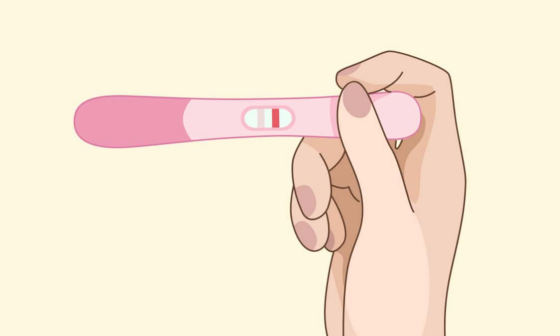When it comes to sexual health during pregnancy, many expectant parents have questions regarding safety. Although sexual activity is generally safe during a healthy pregnancy, certain medical conditions may require caution or even abstinence from intercourse. This guide covers which Factors Contraindicate Sexual Intercourse During Pregnancy, aiming to provide clarity and encourage informed decisions.
Is Sexual Activity Safe During Pregnancy?
In most cases, sexual activity is safe throughout pregnancy for both the mother and baby. Sex can usually continue without issue until labor, provided the pregnant individual feels comfortable. Physical intimacy often supports emotional well-being and can strengthen the bond between partners. However, the key is to stay attuned to the body’s signals and consult healthcare professionals about any concerns.
It’s important to note that pregnancy-related factors, including fluctuating hormone levels, physical changes, and evolving symptoms, can affect a woman’s desire for intimacy. Every pregnancy is unique, so understanding both general guidelines and individual health considerations is crucial.
Key Contraindications for Sexual Intercourse During Pregnancy
Some specific conditions can make intercourse risky during pregnancy. Healthcare providers typically advise abstaining from sexual activity under these circumstances:
- Heavy Vaginal Bleeding
- Vaginal bleeding can indicate several pregnancy-related complications, such as placental problems or threatened miscarriage, and intercourse may exacerbate these issues. Any significant bleeding should be immediately evaluated by a healthcare provider. In some cases, even light spotting may warrant caution depending on the timing and frequency.
- Placenta Previa
- Placenta previa is a condition in which the placenta covers part or all of the cervix. This positioning creates a risk of heavy bleeding, especially during intercourse, as it can cause trauma to the sensitive cervix. If diagnosed with placenta previa, it’s generally recommended to avoid sexual activity to prevent potential complications.
- Cervical Insufficiency (Cervical Incompetence)
- When the cervix weakens and starts to open prematurely, it increases the risk of preterm birth. Known as cervical incompetence, this condition can be triggered by various factors, including previous cervical surgery. Sexual intercourse can place added pressure on the cervix, which may be risky in cases of cervical insufficiency. Abstinence is typically advised if this diagnosis is confirmed.
- Amniotic Fluid Leakage
- Leakage of amniotic fluid can signal a premature rupture of membranes, which is often referred to as the “water breaking.” This condition can lead to infection and preterm labor, making intercourse potentially dangerous. If amniotic fluid is suspected to be leaking, it’s critical to seek immediate medical attention and avoid any activity, including intercourse, that could introduce bacteria into the uterus.
- History of Preterm Labor
- Women who have previously experienced preterm labor are often advised to be cautious with intercourse, as certain activities can stimulate uterine contractions. While not all cases require abstinence, healthcare providers may recommend avoiding intercourse, especially in the latter stages of pregnancy, to minimize any risk of early labor.
Managing Common Symptoms and Discomfort
While medical contraindications focus on severe risks, pregnancy itself introduces several minor discomforts and changes that can impact the desire and comfort for intimacy. These include:
- Nausea and Fatigue: Hormonal changes during pregnancy can cause exhaustion and nausea, particularly in the first trimester. Reduced energy levels can lower libido, and finding comfortable times for intimacy may become challenging.
- Pain and Discomfort During Intercourse: Many women report sensitivity and even pain during pregnancy, especially as the body undergoes physical changes. Positions that were once comfortable may feel awkward or painful as the pregnancy progresses. Painful intercourse should always be discussed with a healthcare provider, as it could signal underlying issues needing attention.
Frequently Asked Questions About Sex and Pregnancy
Can Sex Cause Miscarriage?
- One of the most common concerns is whether sexual activity can trigger miscarriage. For pregnancies without complications, sex does not pose a risk of miscarriage. The baby is well-protected by the uterus and amniotic sac, but open communication with a healthcare provider can help ease any concerns.
When Should I Contact a Doctor?
- It’s wise to consult a doctor if any new symptoms, pain, or discomfort arise during or after intercourse. In cases of bleeding, severe abdominal pain, or regular contractions, medical advice should be sought immediately to ensure both the mother and baby’s health.
Are There Any Safe Alternatives?
- For couples advised to avoid intercourse, non-penetrative forms of intimacy are safe. This allows partners to maintain a close emotional bond without risking physical harm. Communication and creativity can keep the relationship fulfilling, even without intercourse.
Conclusion
While sexual activity during pregnancy is generally safe, specific medical conditions may require abstinence or caution. Factors such as placenta previa, cervical insufficiency, amniotic fluid leakage, heavy bleeding, or a history of preterm labor can elevate risks associated with sexual intercourse. Pregnant women and their partners should feel empowered to discuss these topics openly with healthcare providers to make informed decisions.
By understanding these contraindications and the importance of individualized care, expectant parents can approach intimacy during pregnancy safely, prioritizing both physical and emotional well-being. Ultimately, balancing affection with caution and maintaining open lines of communication are key to navigating intimacy throughout pregnancy.






